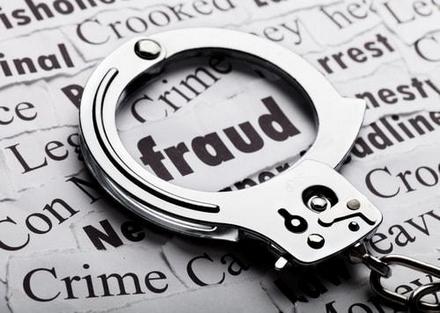TELEPHONES ANSWERED 24 HOURS A DAY
Differences in Federal and State Embezzlement Charges in Illinois
 Embezzlement is considered a white-collar crime. It occurs when one person entrusted with money or property on behalf of someone else misappropriates those assets for their own personal benefit. Many people think that embezzlement is automatically a federal crime. However, this is not true. There are both Illinois statutes pertaining to the crime of embezzlement, as well as federal statutes. The circumstances surrounding the crime will determine which charge is laid.
Embezzlement is considered a white-collar crime. It occurs when one person entrusted with money or property on behalf of someone else misappropriates those assets for their own personal benefit. Many people think that embezzlement is automatically a federal crime. However, this is not true. There are both Illinois statutes pertaining to the crime of embezzlement, as well as federal statutes. The circumstances surrounding the crime will determine which charge is laid.
Federal Embezzlement Charges
Federal embezzlement charges are covered under Title 18 of the U.S. Criminal Code, Chapter 31. These charges are laid when the misappropriation of funds or property crosses state lines, as that falls under federal jurisdiction. In addition, if the embezzlement involved a federal agency such as the United States Postal Service, federal charges will also be laid.
Other considerations in a federal embezzlement case will involve the nature of the offense, the amount of money involved in the embezzlement scheme, and whether or not the accused took responsibility for the crime or took it to trial.
The penalties associated with federal embezzlement charges are severe if those accused are convicted. For any amount of property embezzled that falls under $1,000, those charged will face a maximum fine of $1,000 and a maximum jail time of one year. Penalties for embezzlement including funds or property over $1,000 include maximum fines of $250,000 and maximum jail time of ten years in federal prison.
Illinois Embezzlement Charges
The Illinois statute 720 ILCS 5/16-1 covers embezzlement charges within the state. In order for state charges to be laid, the crime must have occurred within the state of Illinois and not involved a federal agency. Although not a federal crime, the penalties for embezzlement in Illinois are still very serious.
Embezzlement in Illinois is only considered a misdemeanor if the amount of money or property embezzled was under $500 and did not include theft from a person. If convicted of this crime, a person will face up to one year in prison and a fine of $2,500. If the assets embezzled were under $500 but taken directly from a person, the crime is considered a Class 3 felony, which is punishable by two to five years in prison and up to $25,000 in fines.
Class 2 felony embezzlement charges include theft between $10,000 and $100,000 and include sentences of between three to seven years in prison and a fine up to $25,000. Class 1 felony embezzlement convictions involve theft between $100,000 and $500,000 and are punishable by four to 15 years in prison and the maximum fine of $25,000.
The worst type of embezzlement crime in Illinois are those involving property valued over $1 million. These are Class X felonies and those convicted can face between six to 30 years in prison and a fine up to $25,000.
While these are the most common charges in Illinois, they are elevated if the crime involved a place of worship or a school. This will result in even harsher sentences.
Contact an Illinois Federal Criminal Defense Attorney for Federal Embezzlement Charges
Of all the possible embezzlement charges, those involving the federal government carry the most severe punishments. Anyone accused of federal embezzlement needs to speak to a dedicated Chicago federal criminal defense attorney that can help. If you have been charged with federal embezzlement, contact the Law Offices of Hal M. Garfinkel today at 312-629-0669. We know how serious these charges are, and we know how to build you the strong defense you need for the most successful outcome in court. If you have been accused or believe you are under federal investigation, do not wait another minute. Call us today for your free consultation.
Sources:
http://www.ilga.gov/legislation/ilcs/fulltext.asp?DocName=072000050K16-1
https://www.law.cornell.edu/uscode/text/18/part-I/chapter-31




